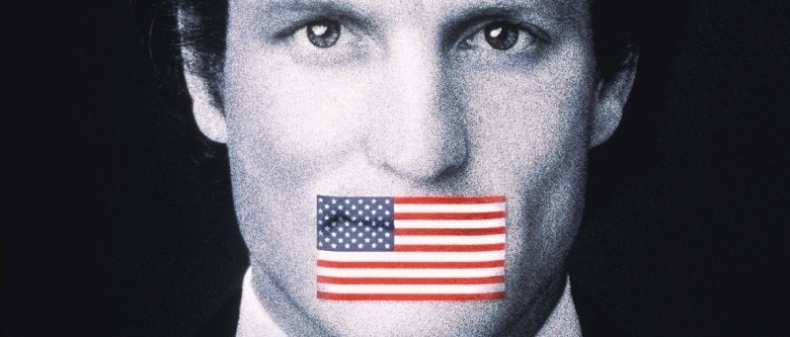
Republican presidential hopeful Rick Santorum attacked the X-biz last week, with his promise of reigniting the war on pornography, should the American people elect him president. In a now removed post on his website, Santorum said that “America is suffering a pandemic of harm from pornography.”
According to Santorum, adult entertainment is responsible for a swath of American misery, including the break-up of marriages, violence against women and “profound brain changes” in adults and children.
What was missing in his rhetoric, however, was the contribution porn has had in advancing America’s First Amendment rights. These rights allow Americans to speak or express opinions freely, without fear of prosecution. They allow the press to publish critical and at times scathing articles about the bad behaviours of politicians.
In the mid-80s, Hustler magazine publisher Larry Flynt ran a satirical Campari ad depicting televangelist Jerry Falwell as an incestuous drunk. The ad took the form of a fake Q&A, in which Falwell, known for his squeaky-clean image, casually admitted to losing his virginity to his mother while drunk off the cocktail bitters.
Falwell sued, but was unsuccessful in convincing the jury that Flynt was guilty of libel and invasion of privacy. He was, however, awarded $200,000 (U.S.) for intentional infliction of emotional distress.
Flynt appealed the decision and, after a long legal battle, was able to reverse the verdict. The U.S. Supreme Court found that the ad, even if is “is patently offensive and is intended to inflict emotional injury,” is protected under the First Amendment.
The 1988 judgment reads: “In order to protect the free flow of ideas and opinions on matters of public interest and concern, the First and Fourteenth Amendments prohibit public figures and public officials from recovering damages for the … intentional infliction of emotional distress by reason of the publication of a caricature ….”
The implications of the ruling extend beyond the world of pornography. The case helped ensure that television personalities such as Stephen Colbert, and publications the likes of The Onion, are free to anger public figures without the threat of a lawsuit.
“If Falwell had won there in 1988, it would have been, quite simply, the end of freedom as we know it in this country,” wrote Newsweek columnist Jonathan Alter in his 1996 article The Right to Be Wrong. “What parody or cartoon or political barb does not ‘inflict emotional distress’ on its targets?”Alter reasoned.
But Flynt isn’t the only pornographer to highlight the breadth of the First Amendment via a well-covered court case.
Evil Angel production company founder John Stagliano, also known as “Buttman,” was indicted back in the spring of 2008 for selling and distributing films deemed to be obscene. Titles included Milk Nymphos, Storm Squirters 2: Target Practice, and Fetish Fanatic 5.
All the charges against Stagliano were dismissed on technical grounds, when the federal judge found the evidence linking Stagliano to the alleged crimes “woefully insufficient.”
In another case, adult book store owner Early Henry was fined and sentenced to 60 days for distributing obscene materials in 1982. He appealed the decision, citing the Oregon Constitution’s free speech clause, and won.
When asked what threat Santorum and his anti-porn crusade posed on the industry, Vivid Entertainment founder Steven Hirsch told MSNBC, “We’ve seen that before.… They can prosecute but ultimately it’s juries that decide what is and isn’t obscene.”
The survival of the adult entertainment industry hinges on the meaning of free speech, and this has meant that they have become the unlikely heroes in the fight for maintaining First Amendment rights, Larry Flynt being one.
And as journalist E.D. Kain recently wrote in the Atlantic, “[Free speech is] what media celebrities like Stephen Colbert rely on to do what they do every day.”
___
Next week’s Business of X-rated series will look into the practice of regular testing in the porn industry.
For more, follow us on Twitter @TorontoStandard and subscribe to our newsletter.














